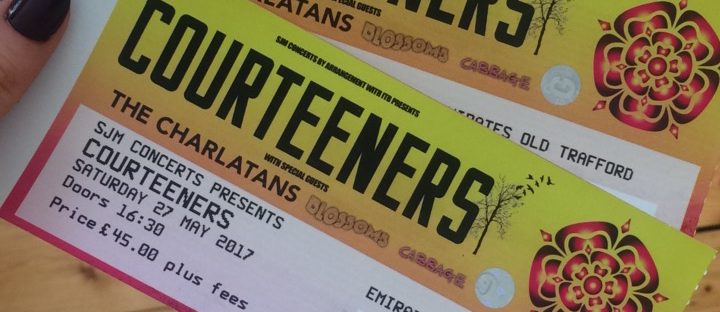Event organisers need to do more to prevent ticket touting, according to a Manchester law professor.
-
Professor Mark James, from Manchester Metropolitan University, discusses the issue of ticket touting
Event organisers need to do more to prevent the ever-growing issue of ticket touting, according to a Manchester law professor.
Professor Mark James, from Manchester Metropolitan University, has recently written about whether it should become a criminal offence.
The secondary ticket market, involving the resale of face value tickets at increased prices, is becoming an ever more common problem in numerous industries, such as the music industry, theatre, comedy shows, sports matches and more.
Professor Mark James, Director of Research, Manchester Law School said:
“At present, nobody is taking enough responsibility for preventing touting.
“Some event organisers would like to see touting criminalised, which hasn’t really worked in football where it has been a crime to tout tickets for 23 years, but are slow to institute their own processes and restrictions.”
He has published numerous articles exploring the issue, including his most recent article published by The Conversation, which examines the wider context of ticket touting, reaching into industries of music, theatre and sport.
Professor James believes that event organisers should take greater responsibility for preventing ticket touting, as self-regulation has failed, resulting in big businesses draining money from the entire industry.
Major campaign group, Fan Fair Alliance, is funded by a list of expert music managers for renowned artists like Mumford and Sons, Arctic Monkeys and One Direction, and they are driven by the aim to curb industrial-scale ticket touting.
The group has recently published research on 30 October 2017 exploring the effect of ticket touting on consumers.
Conducting a survey of 1158 people, Fan Fair Alliance discovered that nearly three quarters (74%) agreed that online ticket touting is becoming a big concern for music fans, and a total of 68% of UK consumers thought that they would attend fewer gigs because of the amount they’ve spent on over face value tickets.
Professor James continued:
“The basic premise of what we are saying is that the current regulatory system isn’t working and needs revisiting.
“One of the major problems is that there is no accepted definition of touting, nor is there an accepted standard wording in tickets’ terms and conditions to prevent their resale, nor is there a general understanding of what a ticket is and what can be done with it.
“I think that it drains money from the industry affecting artists, venues, record labels, event organisers, athletes, teams and leagues.
“It prices people out of attending events and undermines ticket pricing and distribution policies.
Some may suggest that touts provide a service to those unable to purchase tickets when they go on sale, however Professor James disagrees with that argument.
He thinks that if the touts weren’t buying so many of them, then more people would be able to buy them from the event organiser.
Talking about the reason for the occurrence of ticket touting, Professor James said:
“It’s so easy to do.
“At present, there’s virtually no risk of being caught or the tickets being cancelled.”
Professor James suggests that a combination of better security, e-ticketing and returns policies could go a long way to reducing the ability of touts to sell on tickets.


